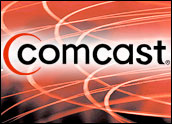
While the communications industry waits for the FCC to fill in the blanks on a white spaces policy, the commissioners are going forward with another plan that would provide free wireless Internet access throughout the U.S.
Late last Friday, the commission released a report showing test results on claims that opening up a narrow part of the spectrum dedicated to free wireless broadband access would interfere with existing carriers’ nearby frequencies. The tests showed that didn’t happen, shooting down technical arguments made by T-Mobile USA. Conditions were simulated at a test facility in Seattle in September, and the results showed that T-Mobile’s handsets and those running on the new, dedicated frequency, “operating in close proximity, does not necessarily result in interference,” the report said. “And when factoring in actual operation under non-static conditions, the situation only improves.”
Not everyone had such a glowing view of the test, however. T-Mobile has “serious concerns” that the test was flawed and ignored other data, Kathleen Ham, vice president for federal regulatory affairs, told the E-Commerce Times. “In light of this, we are concerned that the result was predetermined unfairly. We and the multiple parties concerned about interference will strongly urge the FCC to provide for sufficient time for comment on their report before any FCC action on these rules.”
One Small Step
“We’ve always said that the idea of putting a public service condition on a license like this is good public policy,” Ben Scott, policy director for Free Press, told the E-Commerce Times. “It recognizes that the airwaves belong to the public. This latest round of tests shows that the incumbent carriers’ interference concerns are not a permanent obstacle.”
Free Press is the non-profit advocacy group that is hosting Internet For Everyone, an awareness campaign begun in June that is pushing for cheap Web access for all Americans. It has brought together technology thought leaders like Internet pioneer Vinton Cerf, FCC commissioner Jonathan Adelstein and digital law expert Lawrence Lessig to help lobby lawmakers for a national broadband policy.
Internet For Everyone does not take policy positions, but Free Press does, Scott said. “The next step is to get this band in use, which means it will go to auction and somebody will step forward and make a bid on it. Our hope is that somebody that is not one of the incumbent carriers gets the band and becomes a competitor.”
A Little Victory Over Big Carriers
M2Z Networks had hoped to be that competitor. The Menlo Park, Calif.-based startup initially petitioned the FCC for the part of the spectrum in dispute, but that sparked concerns about frequency interference from major carriers. There were also objections in Washington regarding the potential value of the frequency range. The FCC has since announced plans to auction off that portion of the spectrum, probably before mid-2009, to anyone who would provide some free Web access to customers.
“This (report) signifies that the regulatory process is no longer being held hostage by incumbent carriers,” John Muleta, M2Z Networks CEO, told the E-Commerce Times. “We’re no longer being held hostage by false technical arguments which have been refuted in England, Europe and now firmly refuted in the U.S., which is what we’ve been arguing for the past five months.”
Muleta said his company will remain busy while waiting for the FCC to set up the auction process and place it on the calendar; a vote is expected by the end of the year. M2Z continues to talk to potential partners looking to place applications and devices on its network.















































Social Media
See all Social Media